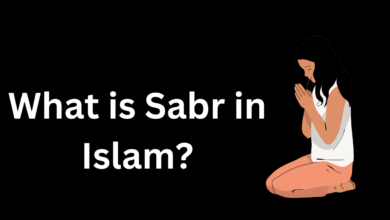Do Muslims Celebrate Birthdays?
Discovering the significance of birthdays in Islamic culture and traditions."

Introduction
The celebration of birthdays is a common practice in many cultures worldwide. It is an occasion to commemorate the day a person was born and is often marked by parties, gifts, and well-wishes. However, the question of whether Muslims celebrate birthdays has been a topic of curiosity and debate. In this article, we will explore the Islamic perspective on celebrating birthdays and delve into the various viewpoints held by Muslim scholars and communities.
The Historical Context
The concept of celebrating birthdays is not explicitly mentioned in the Quran, the holy book of Islam. Additionally, there are no records of Prophet Muhammad (peace be upon him) or his companions celebrating their birthdays during their lifetimes. This historical context has led to differing opinions among Muslim scholars regarding the permissibility and appropriateness of observing birthdays.
Varied Views Among Muslim Scholars
- Those in Favor of Celebrating Birthdays:
Some Muslim scholars argue that celebrating birthdays can be considered a permissible form of cultural expression as long as the celebrations do not involve any actions that are explicitly forbidden in Islam. They believe that the occasion can serve as a time for family and friends to come together, express love and gratitude, and give gifts.
- Those Against Celebrating Birthdays:
On the other hand, many conservative Muslim scholars maintain that celebrating birthdays is not a part of Islamic tradition and, therefore, should be avoided. They argue that since there is no evidence of the Prophet Muhammad (peace be upon him) or his companions observing birthdays, it is better to avoid practices that are not explicitly endorsed in Islamic teachings.
- A Middle Ground:
A third group of scholars takes a more moderate stance, emphasizing the need for contextual understanding. They suggest that while the concept of celebrating birthdays is not intrinsically prohibited, the manner of celebration and the intentions behind it should be closely examined. If the celebration fosters gratitude to Allah, promotes family bonds, and does not involve any sinful activities, it may be deemed acceptable.
Islamic Principles on Celebrations
To understand whether celebrating birthdays aligns with Islamic principles, it is essential to explore some fundamental aspects of Islam:
- Tawheed (Monotheism): Islam is based on the belief in the oneness of Allah. Any celebration that diverts attention away from Allah and His commands may be viewed as contrary to this principle.
- Bid’ah (Innovation): Islam discourages the introduction of new religious practices or innovations. Some scholars argue that celebrating birthdays falls under this category since it was not practiced by the Prophet or his companions.
- Gratitude and Thankfulness: Expressing gratitude for the blessings bestowed by Allah is highly encouraged in Islam. If a birthday celebration fosters this sense of gratitude, it may be seen as a positive aspect of the occasion.
- Moderation: Islam emphasizes moderation in all aspects of life. If a birthday celebration remains moderate and does not lead to extravagance or sinful behavior, it may be considered in line with Islamic principles.
Cultural Influences
The varying attitudes toward birthday celebrations among Muslims are often influenced by cultural factors. In some Muslim-majority countries, birthday celebrations are becoming more prevalent, resembling Western-style parties with cakes, decorations, and gifts. Conversely, in some conservative communities, the practice is still largely shunned.
Ultimately, the permissibility of celebrating birthdays in Islam is an area of flexibility, with room for personal interpretation and cultural practices. It is essential to acknowledge the diversity within the Muslim community and to approach this topic with respect for differing viewpoints.
Alternatives to Birthday Celebrations
For Muslims who may be uncertain about the appropriateness of birthday celebrations, there are other ways to express love and gratitude for individuals’ lives:
- Du’a (Supplication): Muslims believe in the power of prayer and supplication. Friends and family can offer sincere prayers for the well-being and blessings of the individual on their special day.
- Acts of Charity: Engaging in acts of charity and kindness on or around a person’s birthday can be a beautiful way to celebrate their life while also fulfilling Islamic teachings of compassion and generosity.
- Family Gatherings: Organizing family gatherings without necessarily framing them as “birthday parties” can foster togetherness and bonding.
Conclusion
In conclusion, the question of whether Muslims celebrate birthdays is multifaceted and elicits diverse responses from scholars and communities. While some Muslims choose to embrace the tradition, others opt to avoid it due to its historical absence in Islamic tradition or concerns about innovation. The key lies in maintaining a balance between cultural practices and Islamic principles.
As with many religious matters, individual beliefs and practices will vary, and it is essential to respect the choices made by others within the Muslim community. Whatever stance one adopts, the overarching values of gratitude, moderation, and unity should guide any celebrations or commemorations, ensuring they remain in line with the principles of Islam.
Do Muslims celebrate birthdays?
Yes, the celebration of birthdays is a topic of varying opinions among Muslims. Some do celebrate birthdays, while others refrain from it due to differences in religious interpretations and cultural practices.
Is there any religious basis for celebrating birthdays in Islam?
There is no specific religious basis for celebrating birthdays mentioned in the Quran or Hadith (sayings of Prophet Muhammad). As such, the practice is not directly prescribed or prohibited in Islamic teachings.
Why do some Muslims choose not to celebrate birthdays?
Some Muslims who choose not to celebrate birthdays believe that it is not an established practice of the Prophet Muhammad and his companions. They prefer to focus on religious occasions and follow a more conservative approach to religious practices.
How do Muslims who celebrate birthdays typically observe the occasion?
Muslims who celebrate birthdays may do so in various ways, depending on their cultural background and personal preferences. Common practices may include gathering with family and friends, sharing meals, exchanging gifts, and expressing gratitude for the life of the individual.
Are there any specific guidelines or restrictions for birthday celebrations in Islam?
Since there is no explicit guidance on birthday celebrations in Islamic sources, Muslims who choose to celebrate are advised to ensure that the event adheres to Islamic principles. This means avoiding any activities that are haram (forbidden) in Islam, such as excessive consumption of alcohol, inappropriate music, or any behavior that goes against Islamic morals.
Are there any cultural variations in how Muslims celebrate birthdays?
Yes, there are cultural variations in how Muslims celebrate birthdays around the world. Different Muslim-majority countries and communities may have their own unique customs and traditions related to birthday celebrations.
Is celebrating the birthday of the Prophet Muhammad common among Muslims?
Celebrating the birthday of the Prophet Muhammad, known as “Mawlid al-Nabi,” is a common practice in some Muslim communities. However, it is not universally observed and can be a subject of debate among scholars.
Are there any Islamic scholars or schools of thought that explicitly permit or prohibit birthday celebrations?
Yes, different Islamic scholars and schools of thought hold varying opinions on birthday celebrations. Some scholars may permit it as a harmless cultural practice, while others may discourage it due to a lack of religious evidence.





